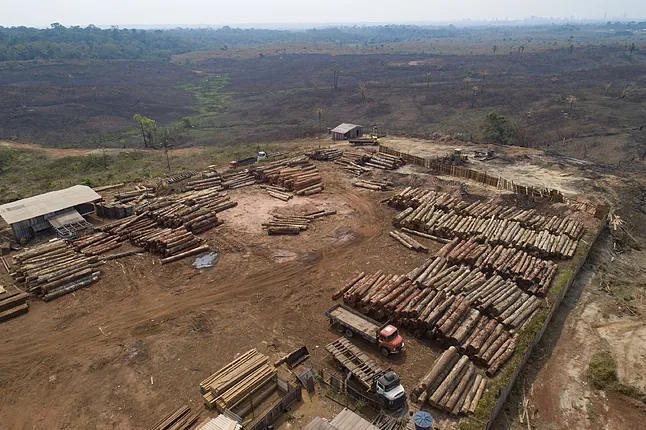Environmental organizations have dubbed it Brazil's "devastation law" and warned that it could mean a 40-year setback in Amazon protection. The text was approved in mid-June (267 votes in favor, 116 against) with the support of the conservative majority in the Brazilian parliament. The final decision now lies with President Luiz Inácio Lula da Silva, who can veto the controversial law before August 8... or simply wash his hands of it.
Pressure on President Lula is increasing, including from his Climate Change Minister, Marina Silva, who strongly opposed the law, considering it a "death sentence" for environmental protections in the country. Silva has highlighted what is at stake: Brazil's international reputation ahead of the COP30 in Belém in November this year.
Suely Araújo, former president of the Brazilian Environmental Agency (Ibama) and coordinator of the Climate Observatory, has become another prominent critic: "The approval of this law is a tragedy. There is no precedent for the level of damage it can cause. It is the biggest step back since the dictatorship in the 1980s."
The "devastation law" streamlines permits for projects deemed as "small" or "medium", including infrastructure construction, mining explorations, or agricultural projects. Promoters could simply fill out a "self-declaration" to reduce bureaucratic procedures.
"We are witnessing the implosion of the licensing system in Brazil created four decades ago," warned Suely Araújo. "From now on, many companies will only need to click and automatically obtain permits."
"'Self-licensing' could even apply to some mining projects and have a serious impact on the Amazon," warned UN Special Rapporteur on Environmental Health Astrid Puentes Riaño in statements to the BBC. "This could all translate into increased deforestation, with automatic approvals and renewals without proper environmental assessment."
The new regulation is also seen as a setback for the protection of indigenous rights and quilombos (communities of descendants of slaves). 30% of indigenous territories and 80% of quilombos are in dispute or pending judicial resolution, although the approved text could also open the door to projects in disputed areas.
"Many of these lands have long been in the sights of companies looking to exploit them," said Dinamam Tuxá, head of the Articulation of Indigenous Peoples of Brazil (Apib), to The Guardian. "We are facing a process of legalizing the extermination of indigenous peoples (...) The only way out is the president's veto and mobilization of society to prevent Parliament from circumventing it."
The law also opens the door to special permits for projects deemed as "strategic," such as oil explorations off the Amazon coast or the expansion of highway BR-319, connecting Rondônia with Amazon states and affecting 40 protected areas and 50 indigenous territories.
"We are facing a project tailored to the predatory sectors of our society to dismantle decades of progress in Brazilian environmental legislation," denounced Congressman Nilto Tatto, coordinator of the environmental caucus in the Brazilian Parliament.
"The new regulation will cast doubt on Brazil's leadership in global efforts for climate change mitigation and adaptation," stated the Brazilian Society for the Advancement of Science in a press release, just four months before COP30.
Major environmental groups, from Greenpeace to WWF, have united against the "devastation law" and have issued a call to mobilize the civilian population and pressure Lula to veto it, "to prevent the country from renouncing its responsibility to defend the Amazon and its peoples."
